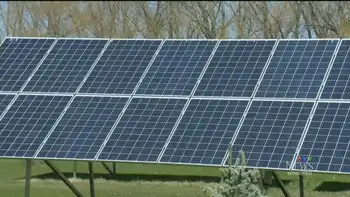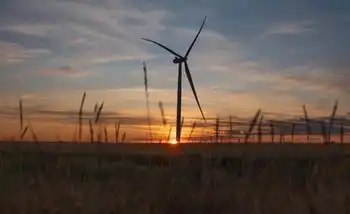Millstone COVID-19 safety concerns center on a nuclear refueling outage in Connecticut, temporary workers, OSHA complaints, PPE shortages, and disinfecting protocols, as Dominion Energy addresses virus precautions, staffing, and cybersecurity for safe voting infrastructure.
Key Points
Employee and union claims about PPE, cleaning, and OSHA compliance during a refueling outage at the nuclear plant.
✅ 10 positive cases; 750 temporary workers during refueling outage
✅ Union cites PPE gaps, partitions, and disinfectant effectiveness
✅ Dominion Energy notes increased cleaning, communication, staffing
Workers at Connecticut's only nuclear power plant worry that managers are not taking enough precautions against the coronavirus, as some utilities weigh on-site staffing measures to maintain operations, after 750 temporary employees were brought in to help refuel one of the two active reactors.
Ten employees at the Millstone Power Station in Waterford have tested positive for the virus, and, amid a U.S. grid pandemic warning, the arrival of the temporary workers alarms some of the permanent employees, The Day newspaper reported Sunday.
"Speaking specifically for the guard force, there's a lot of frustration, there's a lot of concern, and I would say there's anger," said Millstone security officer Jim Foley.
Foley, vice president of the local chapter of the United Government Security Officers of America, noted broader labor concerns such as unpaid wages for Kentucky miners while saying security personnel have had to fight for personal protective equipment and for partitions at access points to separate staff from security.
Foley also has filed a complaint with the Occupational Safety and Health Administration saying Millstone staff are using ineffective cleaning materials and citing a lack of cleaning and sanitizing, as telework limits at the EPA drew scrutiny during the pandemic, he said.
Officials at Millstone, owned by Dominion Energy, have not heard internal criticism about the plant's virus precautions, Millstone spokesman Kenneth Holt said.
"We've actually gotten a lot of compliments from employees on the steps we've taken," he said. "We've stepped up communications with employees to let them know what's going on."
As another example of communication efforts, COVID-19 updates at Site C have been published to keep workers informed.
Millstone recently increased cleaning staff on the weekends, Holt said, and there is regular disinfecting at the plant.
Separately, utility resilience remains a concern, as extended outages for tornado survivors in Kentucky may last weeks, affecting essential services.
Responding to the complaint about ineffective cleaning materials, Holt said staff members early in the pandemic went to a Home Depot and got a bottle of disinfectant that wasn't approved by the federal government as effective against the coronavirus. An approved disinfectant was brought in the next day, he said.
The deaths of nearly 2,500 Connecticut residents have been linked to COVID-19, the disease caused by the virus. More than 29,000 state residents have tested positive. As of Sunday, hospitalizations had declined for 11 consecutive days, to over 1,480.
With more people working remotely, utilities have reported higher residential electricity use during the pandemic, affecting household bills.
For most people, the coronavirus causes mild or moderate symptoms, such as fever and cough, that clear up in two to three weeks. For some, especially older adults and people with existing health problems, it can cause more severe illness, including pneumonia, and death.
In other developments related to the coronavirus:
SAFE VOTING
Secretary of the State Denise Merrill released a plan Monday aimed at making voting safe during the Aug. 11 primary and Nov. 3 general election.
Merrill said her office is requiring all cities and towns in the state to submit plans for the two elections that include a list of cleaning and safety products to be used, a list of polling locations, staffing levels at each polling location, and the names of polling workers and moderators.
Municipalities will be eligible for grants to cover the extra costs of holding elections during a pandemic, including expenses for cleaning products and increased staffing.
Merrill also announced her office and the Connecticut National Guard will perform a high-level cybersecurity assessment of the election infrastructure of all 169 towns in the state to guard against malicious actors.
Merrill's office also will provide network upgrades to the election infrastructures of 20 towns that have had chronic problems with connecting to the elections system.
Related News












